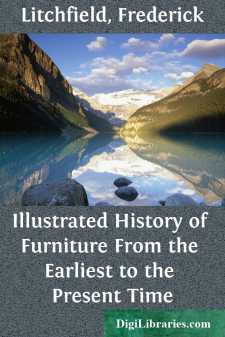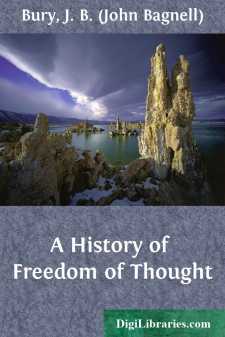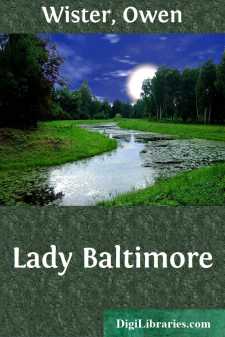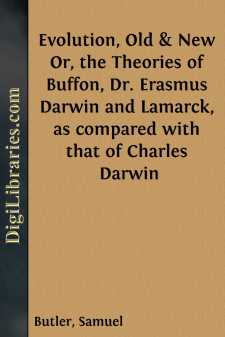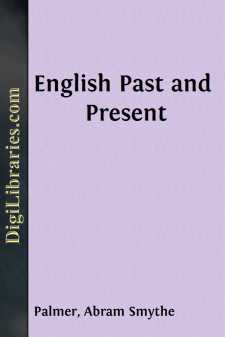History
- Africa 30
- Americas (North Central South West Indies) 50
- Ancient 68
- Asia 58
- Australia & New Zealand 8
- Canada 41
- Caribbean & West Indies 1
- Civilization 20
- Eastern Europe 12
- Europe 310
- Expeditions & Discoveries 60
- General
- Historical Geography 1
- Jewish 9
- Latin America 3
- Medieval 8
- Middle East 13
- Military 248
- Revolutionary 8
- Study & Teaching 5
- United States 353
- Western Europe 56
- World 13
General Books
Sort by:
I DESIRE this evening to give you some account of the life and labours of a very noble Englishman—William Harvey. William Harvey was born in the year 1578, and as he lived until the year 1657, he very nearly attained the age of 80. He was the son of a small landowner in Kent, who was sufficiently wealthy to send this, his eldest son, to the University of Cambridge; while he embarked the others in...
more...
The making of harpsichords flourished in Italy throughout the 16th and 17th centuries. The Italian instruments were of simpler construction than those built by the North Europeans, and they lacked the familiar second manual and array of stops. In this paper, typical examples of Italian harpsichords from the Hugo Worch Collection in the United States National Museum are described in detail and...
more...
PREFACE. In preparing the pages that follow, the writer has had in view the desirability of familiarizing the youth of Georgia with the salient facts of the State's history in a way that shall make the further study of that history a delight instead of a task. The ground has been gone over before by various writers, but the narratives that are here retold, and the characterizations that are here...
more...
Chapter I. Ancient Furniture. Biblical References: Solomon's House and Temple—Palace of Ahashuerus. Assyrian Furniture: Nimrod's Palace—Mr. George Smith quoted. Egyptian Furniture: Specimens in the British Museum—the Workman's Stool—various articles of Domestic Furniture—Dr. Birch quoted. Greek Furniture: The Bas Reliefs in the British Museum—the Chest of Cypselus—Laws and...
more...
CHAPTER I FREEDOM OF THOUGHT AND THE FORCES AGAINST IT IT is a common saying that thought is free. A man can never be hindered from thinking whatever he chooses so long as he conceals what he thinks. The working of his mind is limited only by the bounds of his experience and the power of his imagination. But this natural liberty of private thinking is of little value. It is unsatisfactory and even...
more...
by:
Owen Wister
I: A Word about My Aunt Like Adam, our first conspicuous ancestor, I must begin, and lay the blame upon a woman; I am glad to recognize that I differ from the father of my sex in no important particular, being as manlike as most of his sons. Therefore it is the woman, my Aunt Carola, who must bear the whole reproach of the folly which I shall forthwith confess to you, since she it was who put it into...
more...
by:
Samuel Butler
Contrary to the advice of my friends, who caution me to avoid all appearance of singularity, I venture upon introducing a practice, the expediency of which I will submit to the judgment of the reader. It is one which has been adopted by musicians for more than a century—to the great convenience of all who are fond of music—and I observe that within the last few years two such distinguished painters...
more...
PREFACE At the suggestion of the Cambridge Philosophical Society, the Syndics of the University Press decided in March, 1908, to arrange for the publication of a series of Essays in commemoration of the Centenary of the birth of Charles Darwin and of the Fiftieth anniversary of the publication of "The Origin of Species". The preliminary arrangements were made by a committee consisting of the...
more...
CHAPTER I. INTRODUCTORY. Social organisation. Associations in the lower stages of culture. Consanguinity and Kinship. The Tribe. Kinship groups; totem kins; phratries. The passage from what is commonly termed savagery through barbarism to civilisation is marked by a change in the character of the associations which are almost everywhere a feature of human society. In the lower stages of culture, save...
more...
ENGLISH A COMPOSITE LANGUAGE “A very slight acquaintance with the history of our own language will teach us that the speech of Chaucer’s age is not the speech of Skelton’s, that there is a great difference between the language under Elizabeth and that under Charles the First, between that under Charles the First and Charles the Second, between that under Charles the Second and Queen Anne; that...
more...





